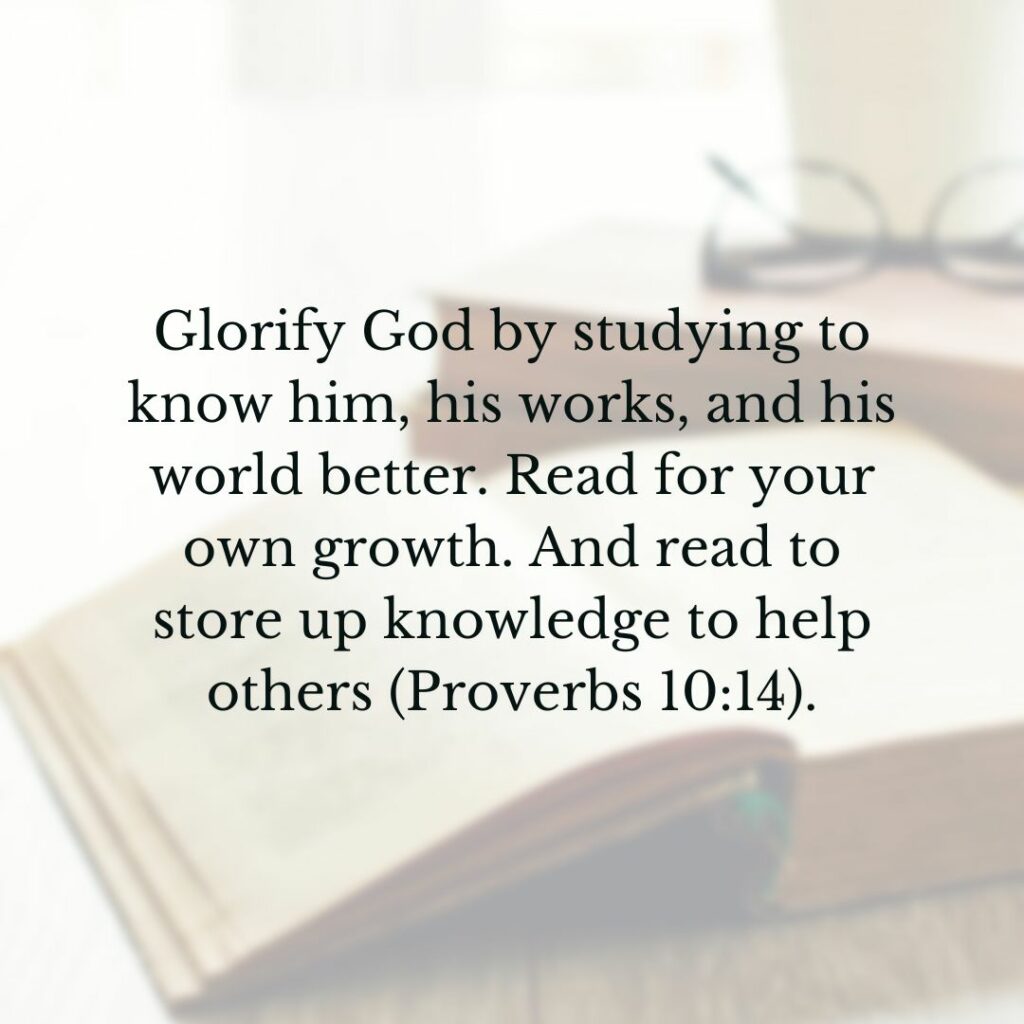
I often meet Christians who aren’t big readers. Maybe that’s you. It’s OK – you don’t have to read lots of books to grow in Christ. You just have to read one! God revealed himself in a book, so you had better learn to read that one. Beyond that, though, there are a lot of great books – Christian and non-Christian – to read alongside the Bible. I encourage you to take up reading to the glory of God as a discipline and for joy. Here are some thoughts to consider.
Work at Reading

Reading is a difficult pleasure. Like hiking, knitting, fishing, and many other favored activities, reading can be relaxing, but it also requires effort. Remind yourself that reading is a great benefit, an investment. Therefore, make it a priority and a commitment. Glorify God by studying to know him, his works, and his world better. Read for your own growth. And read to store up knowledge to help others (Proverbs 10:14).
Read Proven Authors
Not everyone published is worth reading. Many are bad authors; others are bad theologians. As a rule of thumb, I recommend reading proven authors over popular authors. “Read the dead guys” was a phrase tossed around in seminary. If an author has passed into glory and his works are still in print and influential, then he has proven himself at least worthy of consideration. For every work from a contemporary author, read a book or two by a proven saint. Their stuff is often better anyway.
Read Widely
Christians can sometimes get fixated on one thing to the exclusion of others, be it the end times, spiritual warfare, predestination, apologetics, leadership, etc. This may be good for a season, but don’t get bogged down. Read multiple authors on multiple topics so you can be well-rounded in your thinking. Read long books (600–800 pages) and short books (100–200 pages).
It is good to read on practical matters (parenting, evangelism, finances), but don’t live there. Read books that deal with theological matters. Pick up Grudem’s Systematic Theology and read it slowly over the course of a year (or more). But, on the flip side… don’t just read theological books. By all means, read books that help you be a better parent and steward your finances well!
Read Hard Books
One of the benefits of reading is that it shapes your thinking, your ability to comprehend, and also your language. You won’t remember most of what you read, but it still shapes you. Challenge yourself. Occasionally read a book that is above your comfort level. Read books that stretch your language conventions so that you have to reread sentences and look up words. Go slowly; you’re not in a race!
Study Books
The difference between reading and studying is a pen and paper. Underline. Take notes. Write in books. Argue or agree with the author by adding some more ink to the page. Journal your thoughts afterwards or write a page book summary when you’ve finished. It will help your information retention.
Read in Community
Reading is mostly a solitary affair, but you don’t have to do it alone. Read the same book with others simultaneously. Talk it over. Also, lend and give books away that you can recommend to others.
Go get reading!

One Comment
Vickie
Thanks for the article! It’s a good reminder that I need to work on adding more variety to what I read. I’d love to hear some of your top book recommendations.
Commenting has been turned off.